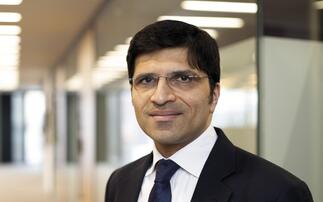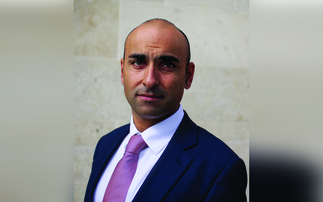
Joining Sustainable Investment editor Beth Brearley were Harry Ashman, vice president of responsible investment at BMO, Rita Wysheleshy, responsible investment analyst at EdenTree and Charlie Anniss, portfolio manager at UBP SA.
While climate change has been in the spotlight for some time, momentum is growing around efforts to support biodiversity. While intrinsically connected, the means of addressing the interlinked issues can be vastly separate. To match that need, the investment community has steadily been expanding the scope and reach of biodiversity-centric opportunities. For investors, this strand of the sustainable market offers the opportunity to be engaged with pivotal businesses and opportunities that are shaping a greener and more ecologically-conscious future.
Why is biodiversity relevant to investors, and how is the investment community conveying that?
Harry: Biodiversity loss has been creeping up the agenda for investors. It's an increasingly important issue for anybody with an engagement programme or any kind of ESG fund. The World Economic Forum's risk report in 2021 cited human environmental damage and biodiversity loss as being in the top six risks for likelihood and impact. There's a lot of science driving that and there's an awareness that entire sections of the economy are almost completely reliant on the stocks and flows and services that biodiversity and nature provide us. If we look at where ‘eco' and that kind of prefix comes from, it comes from the Greek word meaning ‘home'. ‘Eco' is obviously in ecology and economy and that link is something that I think we've forgotten today. To put it bluntly, you can't make money on a dead planet and investors are starting to wake up to that.
Charlie: We've lost 70% of our biodiversity since 1970 and there is an increasing understanding within the policymaking and the academic world that there is an increasing loss of species and ecosystems at risk. There are very clear reasons why this is occurring. We increased the amount of plastic waste in the system by 10 times since the 1980s. We've increased the amount of pesticide use in our agricultural systems by 50 times since the 1950s. We are increasingly degrading our planet and overusing our resources and this realization is coming to the fore in the policymaking environment, but also the investment community.
Rita: We noticed a huge dependency between biodiversity and climate - the two are very much interlinked. We know that industries and companies face huge potential losses due to sanctions, stranded assets, and damages, and these are things that investors need to take into account.
What are you doing to support biodiversity?
Rita: We take biodiversity very, very seriously. The first layer is engagement. When we screen companies if we notice that biodiversity is a risk for the company, we engage with them after we screen them. We also had dramatic engagements with companies where we ran biodiversity engagement in 2020. We're running a second cycle this year with several sectors and we ran a thematic engagement on water earlier this year. It doesn't sound like it would impact biodiversity very much, but we asked companies a lot of questions about river quality. Where's the waste coming from? Where was the waste pollution coming from? What are they doing to improve nature-based solutions? Through our investments, we look to invest in companies that support biodiversity. Our impact funds invest in companies that have positive outcomes, and our Green Future Fund invests in various domestic solutions such as regenerative agriculture and water management.
Harry: We've engaged about 200 issuers in the last 18 months on our environmental stewardship program, but that's 200 out of 8000. It's something that needs to be expanded on. We've got a number of their ESG products that incorporate nature and biodiversity and solutions as well as themes.
Charlie: One of the things that we like to see companies doing is putting together a biodiversity policy and UBP has put its money where its mouth is on that in that respect. We put together a biodiversity policy two years ago, which is a subset of our sustainability strategy, that focuses on the elements that UBP is doing at a corporate level, but also within the fund side. And from a corporate perspective, we were signatories to the business for nature pledge in 2020, we joined the TNFD as a forum member in 2021, and we were very active in terms of engaging with corporates. At the group level, one of the key partnerships that we've been a part of is the Cambridge Institute of Sustainability Leadership, the Investment Leaders Group and we're part of that steering committee which has done a lot of good work, looking at areas like the nature related financial risks handbook, and then the subsequent case studies publication that they did.
Is the investable universe for biodiversity big enough?
Charlie: On our platform as a whole we have a universe of just over 1,000 names on a global basis and in our subset for biodiversity universe we have just over 200 of those names. We look at forestry names. We look at precision agriculture with regenerative agriculture tools to improve the food system and we have another vertical called Planet Friendly Diet, which includes new foods, organic foods and all the movement in that direction. It's a small subset, but we think it is ample to populate a concentrated portfolio of 40 to 50 names.
Is all investment in nature and biodiversity very illiquid?
Harry: There are some exciting asset classes out there, in terms of nature-based solutions or regenerative agriculture, where we are regenerating different parts of nature, whether that's on land or oceans. By nature, real assets do tend to be less liquid. I think it does depend on which asset class you're playing in because they're subject to the different liquidity issues. What is nice is that the area of nature and tackling biodiversity loss has opportunities across the different asset class spectrum. The government's done some really interesting research on the links between nature loss and sovereign debt, so it stretches across the whole spectrum of assets.
How do you screen companies on biodiversity risk?
Rita: We don't believe in a one-size fits all approach. We screen companies individually and we look at the different sectors they operate in. When we screen companies, we look at whether or not they have a biodiversity policy in place where relevant and whether they have biodiversity expectations from their suppliers. Within the food sector, we look at deforestation policies, but more importantly, how they are enforced. We're also looking at what companies are doing to protect biodiversity beyond what is required. What kind of initiatives do they have in place? Are they using suppliers that are certified by the Roundtable on Sustainable Palm Oil or the Roundtable on Responsible Soy? These tend to be certified and audited, so there's more likely that they're not damaging biodiversity.
Visit https://www.sustainable-investment.com/sustainable-investment-alliance












